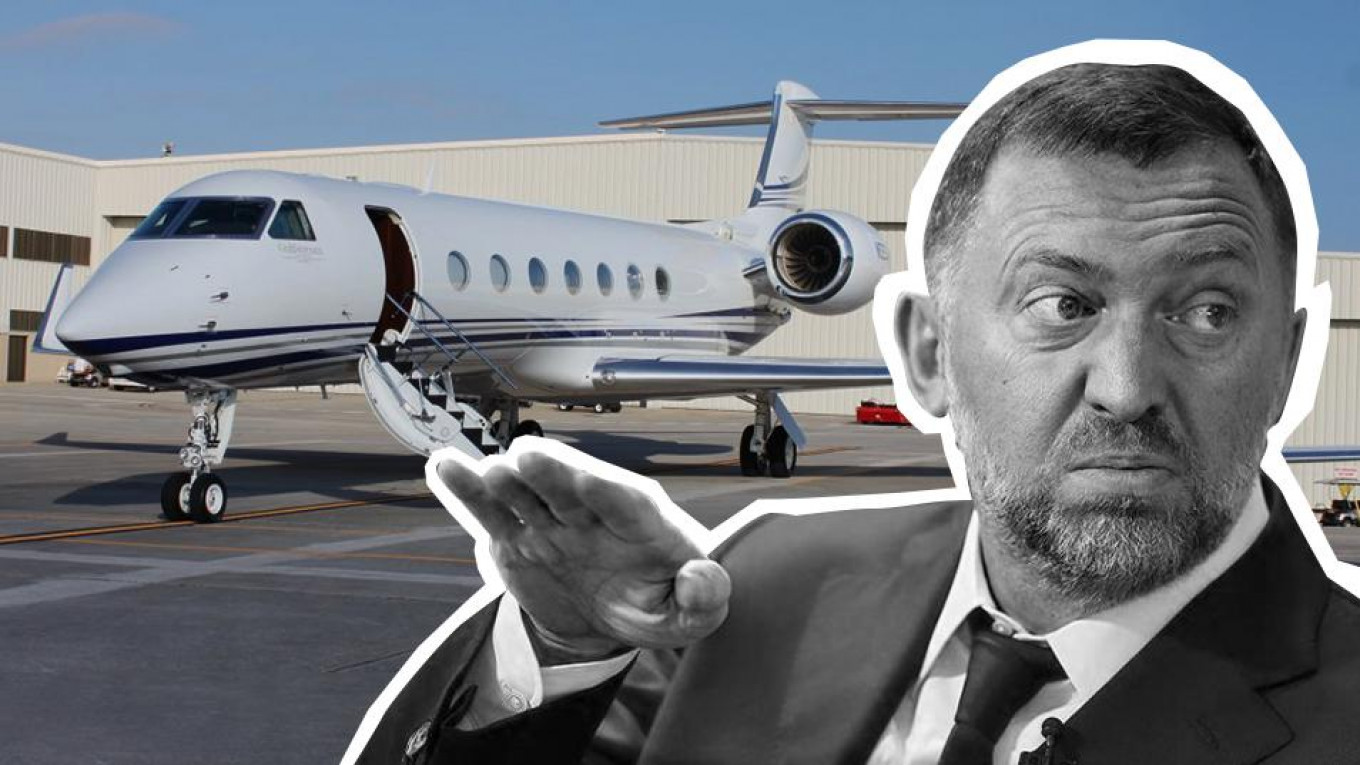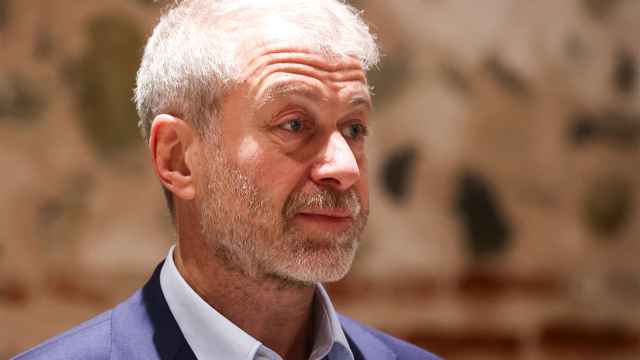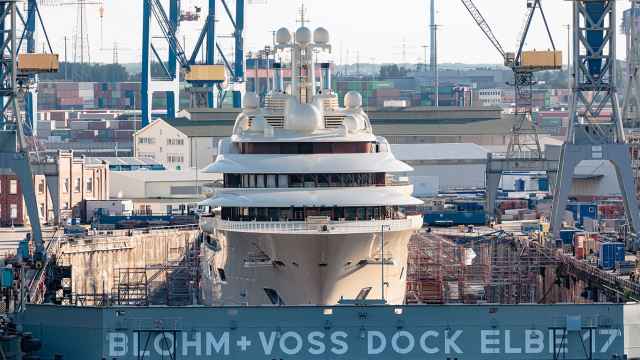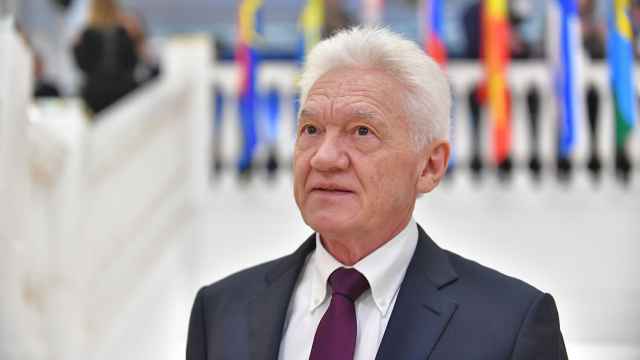Russian tycoon Oleg Deripaska has handed back three private jets he was leasing because U.S. sanctions imposed on him last month make it impossible to keep using the planes, the firm retained by the owners to sell the aircraft said on Thursday.
The aircraft are Gulfstream executive jets, favored by jet-setting business people for their long range and plush interiors. They are now on sale, with the asking price for two of them set at $29.95 million each.
The return of the aircraft is an indication of how deeply the sanctions have affected Deripaska's business empire, extending beyond the direct impact on his Rusal aluminium firm, whose sales and supply chains have been heavily disrupted.
Alireza Ittihadieh, director of Freestream, an aviation sales company that listed the three jets for sale, said the jets were owned by lenders Credit Suisse and Raiffeisen, and were then leased via a management company to Deripaska-controlled firms.
"Who was using it? Senior management, including Deripaska himself," Ittihadieh told Reuters in a phone interview.
"He's sanctioned, his companies are sanctioned, he has to return the aircraft. He has to early-terminate the leases, under sanctions rules," he said, without specifying which sanctions rules applied in this case.
A representative of Rusal's press service said the firm declined to comment.
A spokesman for Credit Suisse declined to comment on a specific case, but said: "Credit Suisse works with international regulators wherever it does business to ensure compliance with sanctions. This includes compliance with the recent sanctions involving Russia."
A spokeswoman for Raiffeisen said she could not reply to Reuters questions because Thursday was a public holiday in Austria. She also said that "due to the banking secrecy law we cannot comment on potential clients."
Deripaska was included on a U.S. sanctions blacklist on April 6 because, officials in Washington said, he and other Russian oligarchs had profited from the "malign activities" of the Kremlin around the globe.
Anyone included on the list is barred from entering the United States, and U.S. firms and citizens are barred from doing business with individuals or companies that have been blacklisted.
Non-U.S. companies can also be punished by Washington if it deems they have engaged in significant transactions with a sanctioned entity. Banking sources say that has made European banks wary of handling transactions involving Deripaska or any firms connected to him.
According to the Isle of Man civil aircraft register, where the three jets are registered, their owners are offshore companies whose shareholders are not publicly disclosed.
All three are Gulfstream G550 aircraft, which each cost around $50 million when new. They each have the same distinctive grey-and-white livery, according to photographs accompanying the sales listings, and images posted online by amateur plane-spotters.
The G550 jets have a range of 12,500 km (7,770 miles) and can come fitted with options such as a private stateroom and hand-tailored leather seats.
Ittihadieh, the aviation sales executive, said the owners of the aircraft opted to sell once Deripaska and his businesses ended the lease.
"The bank doesn't need the assets," he said. "Banks take assets. Once the lease return takes place, they either sell it or they re-lease it. And in this case they have a five-year old asset and they have chosen to sell them."
The two aircraft for sale at $29.95 million were manufactured in 2012 and carry the tail numbers M-ALAY and M-UGIC. The third aircraft, with the tail number M-SAWO, was manufactured in 2005, and no asking price was listed.
When the sanctions were imposed, the M-UGIC aircraft was in Basel, Switzerland, publicly-available flight tracking data shows. The day after the sanctions on Deripaska, April 7, the jet flew back to Moscow.
The older aircraft, with the tail number M-SAWO, was in Buffalo, New York State, the day the sanctions were imposed, according to data available on two websites that track private jets, Virtual Radar and adsbexchange.com. The following day it flew to New York City and from there on to Russia.
A week later, the aircraft made a tour of cities in Siberia where Deripaska has factories. Sources close to Rusal told Reuters that at the time Deripaska was visiting those factories.
In one past case of sanctions affecting the travel arrangements of a Russian tycoon, oil trader Gennady Timchenko told Russian state news agency Tass that Gulfstream stopped servicing his jet because he was put on a U.S. sanctions blacklist in 2014.
A Message from The Moscow Times:
Dear readers,
We are facing unprecedented challenges. Russia's Prosecutor General's Office has designated The Moscow Times as an "undesirable" organization, criminalizing our work and putting our staff at risk of prosecution. This follows our earlier unjust labeling as a "foreign agent."
These actions are direct attempts to silence independent journalism in Russia. The authorities claim our work "discredits the decisions of the Russian leadership." We see things differently: we strive to provide accurate, unbiased reporting on Russia.
We, the journalists of The Moscow Times, refuse to be silenced. But to continue our work, we need your help.
Your support, no matter how small, makes a world of difference. If you can, please support us monthly starting from just $2. It's quick to set up, and every contribution makes a significant impact.
By supporting The Moscow Times, you're defending open, independent journalism in the face of repression. Thank you for standing with us.
Remind me later.







